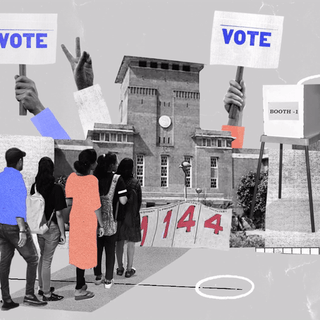
Spanish Court Orders Man to Pay Ex‑Wife 200,000 Euros for 25 Years of Unpaid Labor
The judgement reignited conversations on whether women’s domestic labor should be paid — and who should pay.

A Spanish court on Tuesday ordered a man to pay his ex-wife compensation of more than 200,000 Euros for her 25 years of unpaid domestic labor during their marriage, Agence France-Presse (AFP) reported. The court arrived at the figure based on the minimum wage for each year the couple spent together. The sentence, reported on the eve of International Women’s Day, reignited conversations about unpaid domestic labor, and whether it should be monetarily compensated.
The responsibility of domestic work often falls disproportionately on women. According to statistics based on an Oxfam India 2020 report, women in urban India spend four hours more than men on housework each day. A 2018 report by the International Labor Organization further notes that Indian women spend 352 minutes — almost six hours — a day on unpaid work, whereas men only spend about 51.8 minutes on average. Globally, the report indicates, women account for 76.2% of total hours of unpaid care work. In Asia-Pacific, this number increases to 80%.
These numbers highlight how women are not only disproportionately burdened with the responsibility of carrying out domestic labor, but also how it often leads to time poverty — the scarcity of time to pursue any other substantial hobby, interests, or paid work. When a large part of this work remains unpaid, women are not only left without compensation, but also without formal recognition for the hours they put in running the household and ensuring all its members’ well-being.
Often, women are confined to housework by their husbands and their family. In the case from Spain, the man ordered to pay the fine was allegedly the one who restricted the woman from working, and designated domestic chores as her sole responsibility. This left her with no option to earn an income or achieve financial independence — thereby tying her down to her household and her husband.
Instituting a system for compensation for unpaid domestic labor, then, can accord women both with the recognition and dignity for their labor as well as the financial stability and independence they would need to not only leave a marriage, but also have agency in the world.
Related on The Swaddle:
However, some experts have concerns about how this would play out. In 2021, in the run-up to assembly elections in a few states, some Indian political parties promised women that they would be paid for their domestic labor if the party was voted to power. In reaction to this, some economists and researchers expressed alarm over the move’s potential to further entrench the gender gap in society. They speculated that giving cash incentives to women for their housework would only encourage them to continue to engage in such work, preventing them from stepping out into the organized labor force outside. They “agree(d) that women’s unpaid labor needs to be recognized but believe(d) such a policy would entrench existing gender norms, provide an excuse to families who do not want women to work outside the home and worsen India’s already low female labour force participation,” a report noted. Simply paying women for their work instead of actively dividing housework responsibilities, therefore, would lead to no real change in the position of women in society.
The second question pertains to who pays. In 2012, Krishna Tirath, the then Women and Child Development Minister of India, considered a proposal that “the work of homemakers be quantified and remunerated by their spouses.” However, critics noted that it was a flawed argument. As Manasi Gandhi, writing for The Wire, noted, this proposal “presumed that the onus of the labour fell upon the spouse, conversely meaning that the spouse was the owner.” Further, the proposal “also reflected the stance of the state in shrugging its own responsibility in the matter.” Besides, it wouldn’t increase household income — only divide it.
However, others say these challenges must not discourage the state and other institutions to drop the idea of monetarily compensating housework altogether. In fact, as public policy researcher Vineet John Samuel notes, the recognition and compensation for housework might lead to new definitions of labor entering the mainstream. Recognition and compensation for housework, he writes, “moves us towards a more holistic understanding of labor that isn’t purely tied to the exchange value of a service on the market, and recognizes an extremely intimate form of labor that has proved essential to keeping the unit of the family intact and functional.”
Moreover, formal recognition of housework could also lead to some sort of gender justice in terms of the unfair division of domestic labor that currently exists in society. After all, “once recognized as work, this arena of unpaid domestic labor that is dominated almost entirely by women can become one where women can demand some degree of parity in terms of the time and energy expended on it. Without the recognition of unpaid women’s labour as genuine work, the building block of this argument goes missing and recognition becomes fundamental to this call for gender justice,” Samuel notes.
The concept of alimony partly achieves this recognition — the sum is calculated based on how long a woman has been out of the paid workforce, which in turn determines her capacity to re-enter it and sustain herself. Recognition and compensation of unpaid domestic labor even within marriage, however, is key to arriving at meaningful gender equity in society.
Amlan Sarkar is a staff writer at TheSwaddle. He writes about the intersection between pop culture and politics. You can reach him on Instagram @amlansarkr.
Related


Can Self‑Respect Marriages Fix the Patriarchy, Casteism of Traditional Marriage?
